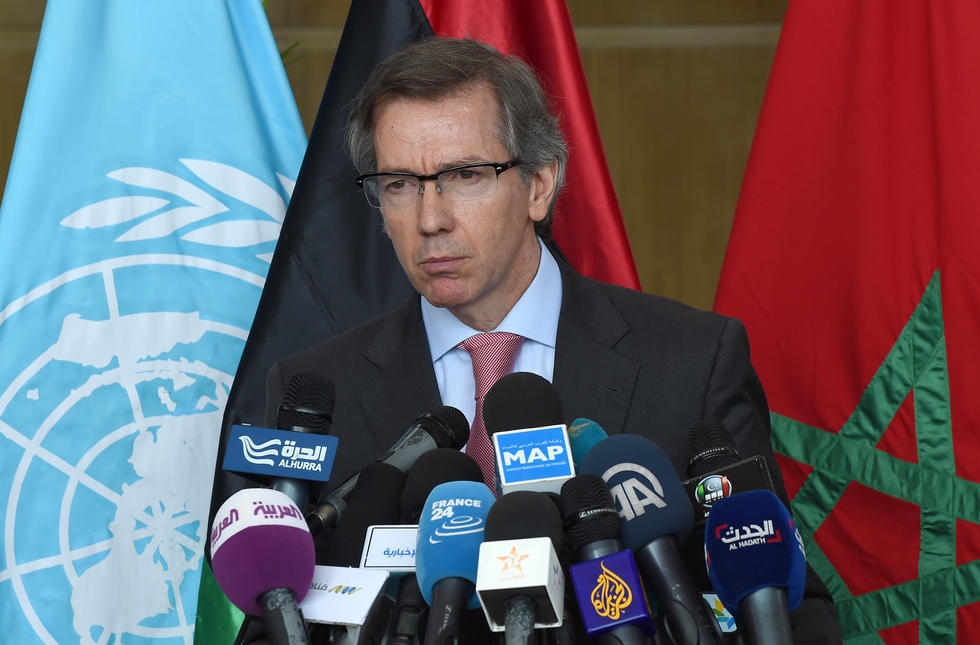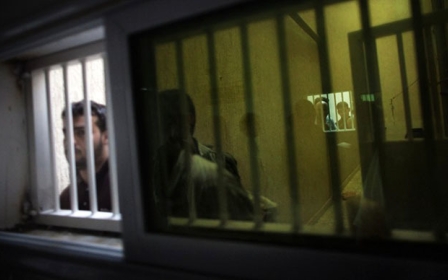Rival Libya governments 'closer to solution' in Morocco talks: UN envoy

SKHIRAT, Morocco - UN envoy Bernardino Leon called for "a message of hope" as rival Libyan groups met in Morocco on Friday with a view to signing a deal on a unity government.
He made the appeal following the "horrific attacks" that occurred on Friday including in Sousse in Libya's neighbour Tunisia.
Libya's warring factions arrived on Thursday in Morocco for a fresh round of UN-brokered peace talks aimed at ending months of fighting in the stricken North African state.
"I hope we can work in the coming days to find a peace agreement that will allow a solution for Libya and will also send an important message of hope," Leon told reporters.
"All the Libyan representatives and those from the international community want to send a message of solidarity to the four countries that have suffered," he added, referring to bloody attacks Friday in Tunisia, Kuwait, Somalia and France.
"These are horrific attacks, and Libya knows such attacks every day. We have to end this situation, we must find an agreement," the Spanish diplomat said.
Oil-rich Libya has rival governments and parliaments, and armed militant groups, including Islamic State, have seized on the chaos to make strategic gains.
The Tripoli-based parliament was set up by the Fajr Libya (Libya Dawn) militia alliance that seized the capital last year to contest the legitimacy of the Tobruk-based internationally recognised legislature.
Leon told journalists in the Moroccan resort of Skhirat that the two sides were "getting closer to a solution".
“Obviously, the fact that all the participants in the dialogue have accepted the fourth draft as a basis for a final solution is extremely encouraging," he said.
Following the last round of talks in Morocco earlier this month, Leon presented both sides with a draft agreement - the fourth such proposal - outlining plans for a unity government in Libya.
According to Reuters, the UN proposal calls for a government in which a legislative council, headed by a prime minister and two deputies, will have executive authority.
The House of Representatives - the current internationally recognised Tobruk-based government - is to serve as the legislative body, but the deal also envisions the creation of a 120-member State Council, consisting of 90 members of the Tripoli-based government.
The rival sides have already agreed to the draft in principle, but questions remain over the State Council’s future authority, the House of Representatives’ legitimacy, and who will be the commander of Libya’s armed forces.
The UN Security Council has urged both Fajr Libya and the internationally recognised government to sign a deal in order to stem rising violence and the growth of extremist organisations such as the Islamic State group on Europe's doorstep.
Stay informed with MEE's newsletters
Sign up to get the latest alerts, insights and analysis, starting with Turkey Unpacked
Middle East Eye delivers independent and unrivalled coverage and analysis of the Middle East, North Africa and beyond. To learn more about republishing this content and the associated fees, please fill out this form. More about MEE can be found here.




